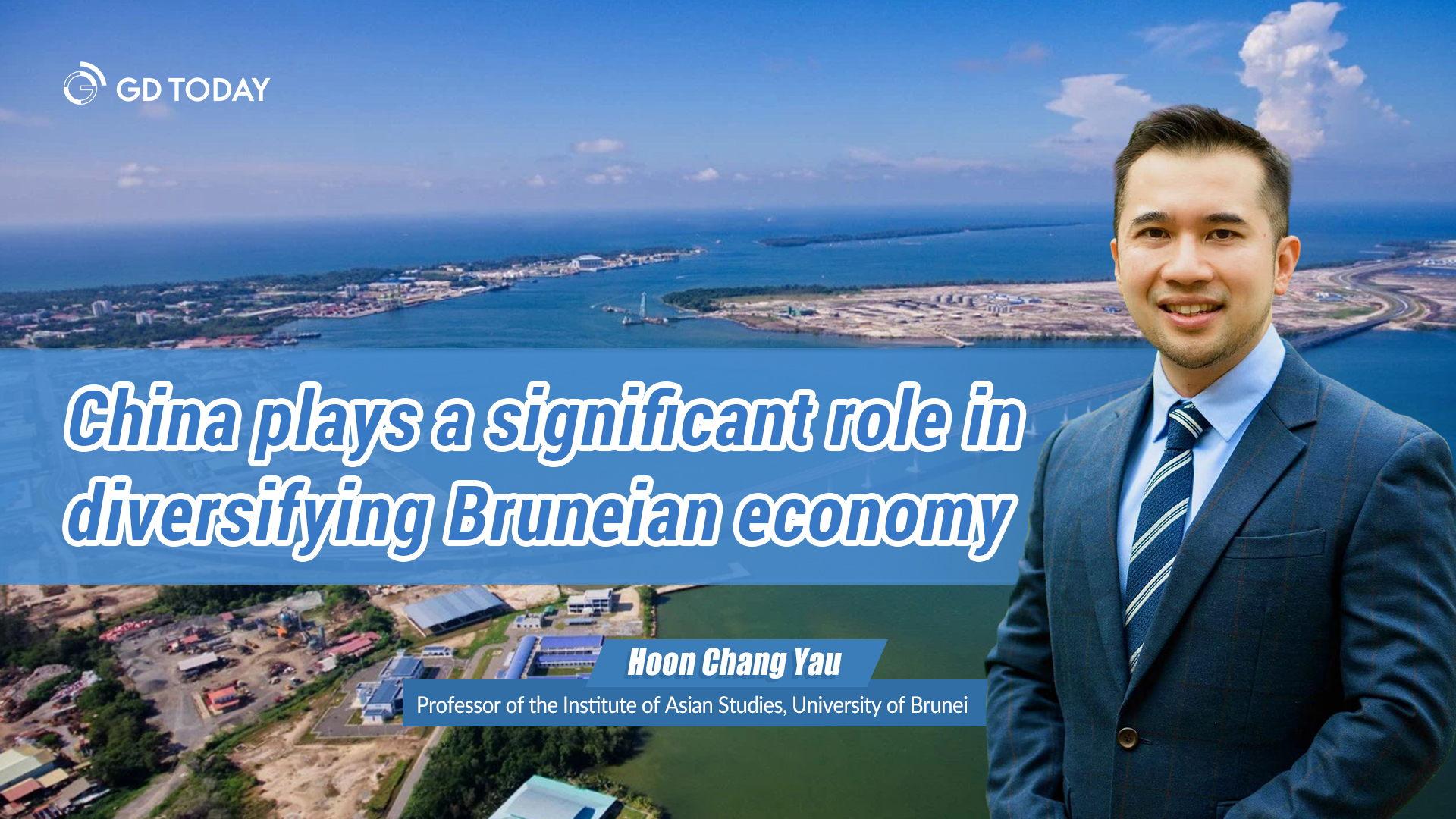“China has played a significant role in diversifying Brunei’s economy with projects such as Hengyi Industries, which helps Brunei develop the downstream industries of oil and gas by increasing oil refining capacity,” Hoon Chang Yau, Professor of the Institute of Asian Studies, University of Brunei, told GDToday in a recent interview.

Chinese President Xi Jinping met with Brunei’s Sultan Haji Hassanal Bolkiah in San Francisco, the United States, recently on November 16, 2023, during which joint efforts were stressed to make positive progress in joint maritime development and jointly safeguard peace and stability in the South China Sea.
“Bilateral relations between China and Brunei were established in 1991 and have been getting even stronger, especially the relationship between the top leaders. The meeting between President Xi and the Sultan will strengthen such a relationship,” said Hoon.
China’s largest BRI project in Brunei brings talent and technologies
2023 marks the 10th anniversary of the Belt and Road Initiative (BRI). Hoon introduced that Hengyi Industries is the largest investment from China in Brunei, saying, “This project is very significant and they have created new jobs for Bruneians.”
Brunei is heavily dependent on its hydrocarbon resource, which provides more than half of the nation’s income. The government has highlighted its concerns about the nation’s oil dependence. Brunei sees diversification as integral to its economic development and has outlined plans to reduce oil dependency and develop other industries.
Hengyi Industries is a joint venture between China’s Zhejiang Hengyi Group and Damai Holdings, a wholly-owned subsidiary under the Brunei government’s Strategic Development Capital Fund. Hengyi invested about USD 3.45 billion in the first phase of its oil refinery and petrochemical project in Brunei, which went into full operation in November 2019.
On November 8, 2023, Hengyi Industries signed an Implementation Agreement for the Pulau Muara Besar (PMB) Phase 2 Development Project. Completing Phase 2 will increase the crude oil refining capacity by an additional 2 million tons per year.
“Hengyi has been involved in technical and knowledge transfers as well as expanding plants so that the project contributes a lot to the Brunei community and helps to achieve economic diversification in Brunei. This is especially important given Brunei’s heavy reliance on the oil and gas industry,” explained Hoon.
Hoon also highlighted that Hengyi has been responsible and emphasized environmental protection and sustainability in Hengyi’s annual report and all the indexes they have published so far.
Hoon continued that the University of Brunei also keeps a good relationship with Zhejiang University, where Brunei students study chemical engineering in Zhejiang every year, and then they come back to Brunei and work for Hengyi.
On November 9, Hengyi Industries Sdn. Bhd., the largest joint venture between Brunei and China, witnessed a Memorandum of Understanding (MoU) signed between Universiti Brunei Darussalam (UBD) and China’s Zhejiang University, extending its scholarship program for another five years to nurture local petrochemical talents.
Marine cooperation highly potential under BRI
In 2014, Guangxi signed a memorandum with Brunei to build an economic corridor. Hoon emphasized the establishment of the economic corridor between Brunei and the Guangxi Zhuang Autonomous Region in 2014 has attracted Guangxi companies.
The Government of Brunei is committed to an economic diversification strategy and has identified fisheries as a key development sector to encourage foreign companies to cooperate with local enterprises.
According to the Chinese Ambassador to Brunei in 2022, China’s aquaculture production has ranked first in the world for 32 consecutive years, accounting for more than 60 percent of the world’s total aquatic production. With China’s market demand and advanced fishery technology, the development of the fisheries industry between China and Brunei is highly complementary to each other and has great potential for further cooperation.
Fisheries cooperation is an important area under the BRI and the Guangxi-Brunei Economic Corridor. “A fishery company from Guangxi also invited Chinese experts in the fishery industry to Brunei and visit the University of Brunei as well to enhance research cooperation with the University of Brunei on marine science and ocean studies,” Moon furthered.
In February 2017, Guangxi Beibu Gulf International Port Group Company Ltd. and Brunei’s Darussalam Assets formed a joint venture company to operate the Muara Port container terminal.
“The company from Guangxi has helped us to develop the port, made it a lot more efficient, upgraded its technology and infrastructure, and increased the capacity of this port,” said Hoon.
On July 8, 2023, Brunei opened a container shipping route between Muara Port, its sole deep-water port, and Beibu Gulf Port in south China’s Guangxi Zhuang Autonomous Region, marking the first such route between the Southeast Asian country and China.
Strong potential between GBA and Brunei in academic exchanges
According to Hoon, Jinan University is one of the earliest universities in which the University of Brunei has an MOU. Students at the University of Brunei have come to Jinan University for exchange, and some of them even decided to pursue a master’s degree after finishing undergraduate study.
“Guangzhou has been the window for Brunei students to know China because Jinan University is the first place that they have visited in China, and they would go back to Brunei to tell people about China based on their first-hand experience. They play important roles in dispelling misunderstanding and deepening understanding between the two sides,” said Hoon.
“In the higher education sector, there have been many exchanges between universities in Brunei and universities in Guangzhou and Hong Kong. For example, every summer, the University of Brunei will receive interns from Hong Kong to work in Brunei. There is still a lot of potential in terms of research, education exchange, student exchange, and so on between the GBA and Brunei because the GBA is the economic engine of China,” said Hoon.
Reporter: Jasmine, Rofel
Poster: Mia
Editor: Olivia, Jasmine, James
















